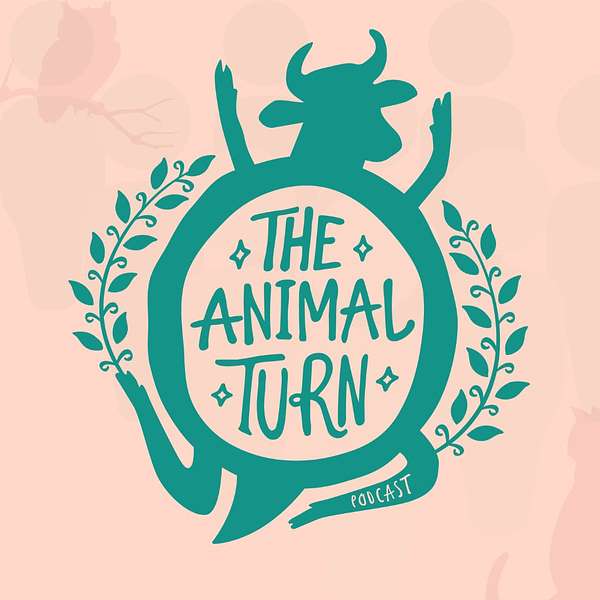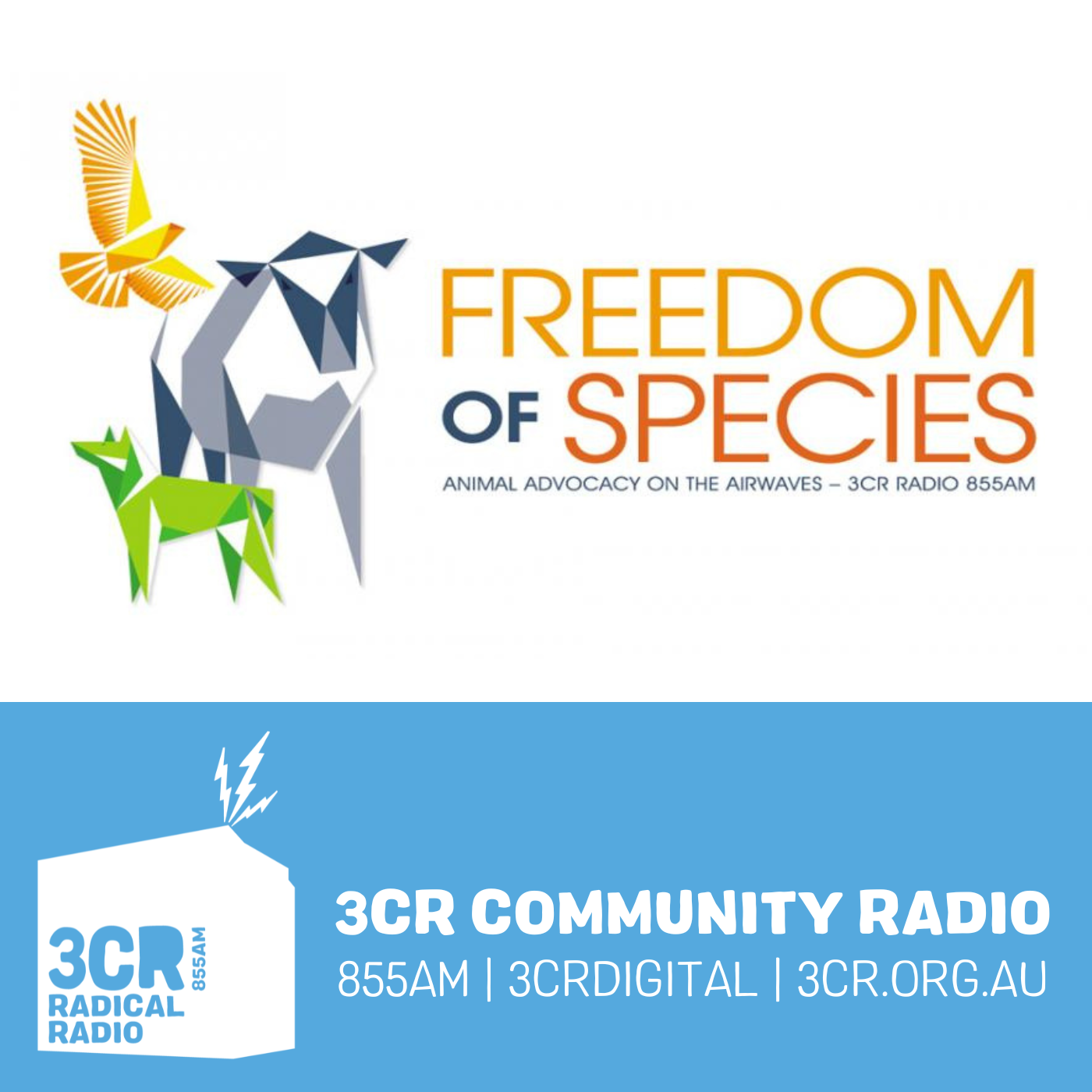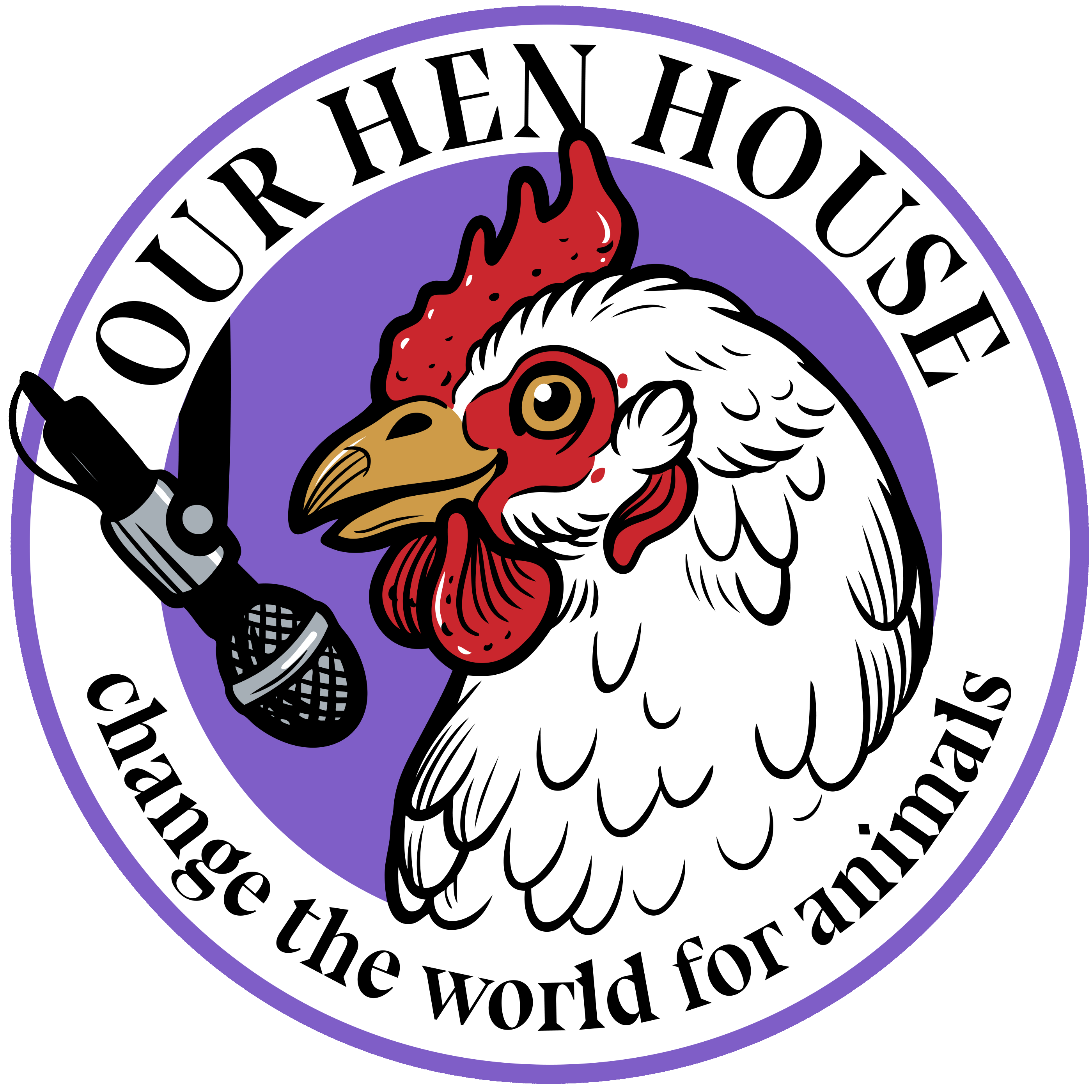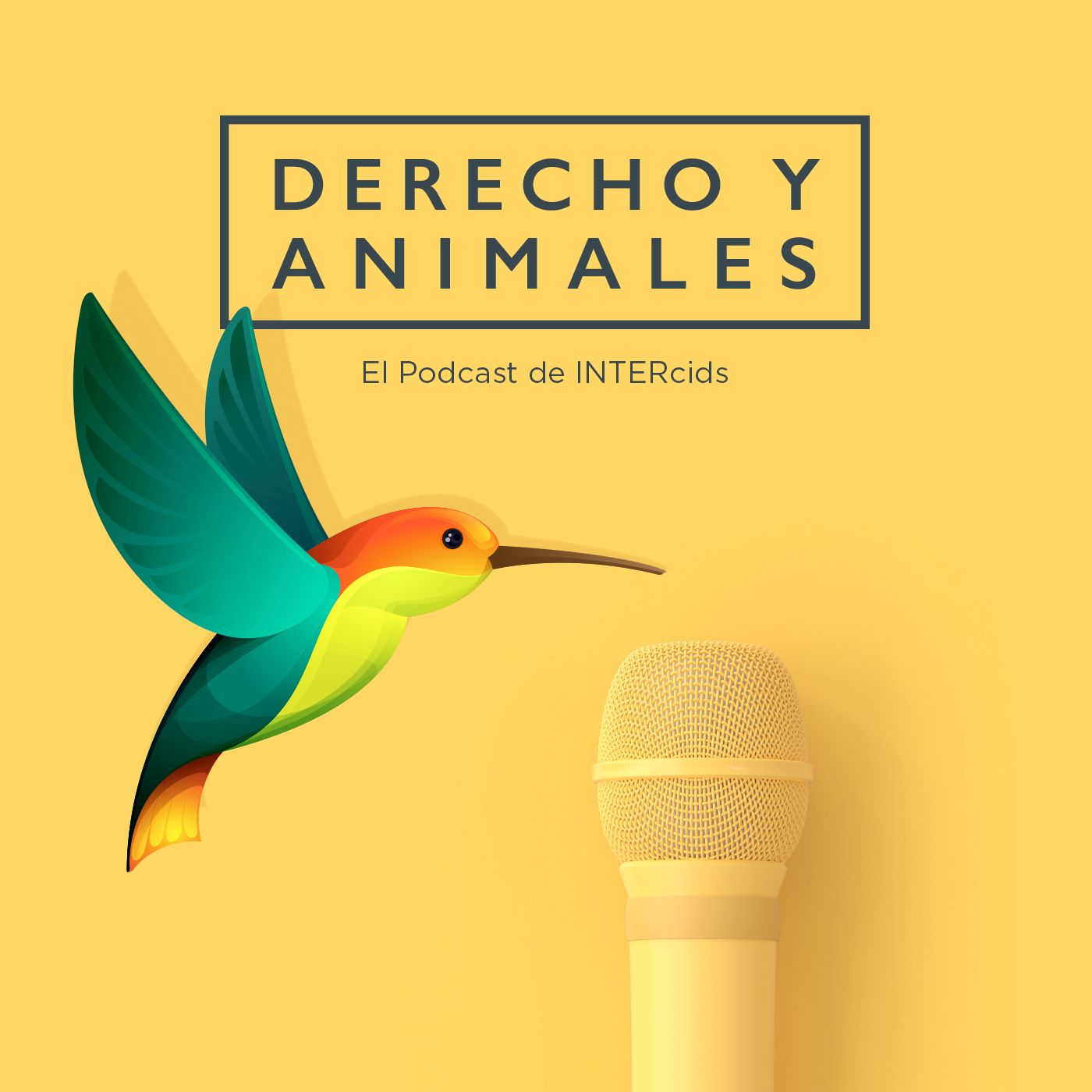
The Animal Turn
Animals are increasingly at the forefront of research questions – Not as shadows to human stories, or as beings we want to understand biologically, or for purely our benefit – but as beings who have histories, stories, and geographies of their own. Each season is set around themes with each episode unpacking a particular animal turn concept and its significance therein. Join Claudia Hirtenfelder as she delves into some of the most important ideas emerging out of this recent turn in scholarship, thinking, and being.
The Animal Turn
S6E3: Moral Imagination and Habitat Rights with Steve Cooke
In this episode Steve Cooke discusses the significance of philosophy in helping to foster moral imagination. Such imagination allows for conceptual development, making moral progress and political change possible. With this backdrop, Steve unpacks how the development of habitat rights for animals would be an important step in ensuring animal vital interests are protected.
Date Recorded: 7 September 2023.
Steve Cooke is an Associate Professor of Political Theory at the University of Leicester. He works on justice and nonhuman animals, and in the ethics of protest and activism. His main interests are in what a just society for human and nonhuman animal might look like, and the ethics of different ways of achieving it. He recently published What are Animal Rights For?, published by Bristol University Press. Learn more about Steve on his university profile page or connect with him on Mastodon.
Claudia (Towne) Hirtenfelder is the founder and host of The Animal Turn. She has a PhD in Geography from Queen’s University, and her research is focused on the significance of the problematization of urban animals. She was awarded the AASA Award for Popular Communication for her work on the podcast. Contact Claudia via email (info@theanimalturnpodcast.com) or follow her on Twitter (@ClaudiaFTowne).
Featured:
- What are Animal Rights For? by Steve Cooke.
- Imagined Utopias: Animals Rights and the Moral Imagination by Steve Cooke
- A Theory of Justice by John Rawls
- The Tanner Lectures on Human Values, Fellow Creatures: Kantian Ethics and Our Duties to Animals by Christine M. Korsgaard.
The Animal Turn is part of the iROAR, an Animals Podcasting Network and can also be found on A.P.P.L.E
A.P.P.L.EAnimals in Politics, Law, and Ethics researches how we live in interspecies societies and polities.
iROAR Network
iROAR brings together podcasts that aim is to make the world a better place for animals.
Disclaimer: This post contains affiliate links. If you make a purchase, I may receive a commission at no extra cost to you.
The Animal Turn is hosted and produced by Claudia Hirtenfelder and is part of the iROAR Network. Learn more on our website.
- Leave a Review on Podchaser
- Check out The Animal Turn Merch.
- Support us on Patreon, Buy Me a Coffee, and Buzzsprout.
00:00 - Introduction
- It’s season 6 and this season we are focusing on animals and politics
- Steve Cooke is an Associate Professor of Political Theory at the University of Leicester. He works on justice and nonhuman animals, and in the ethics of protest and activism. His main interests are in what a just society for human and nonhuman animal might look like, and the ethics of different ways of achieving it. He recently published What are Animal Rights For?, published by Bristol University Press. Learn more about Steve on his university profile page or connect with him on Mastodon.
- Habitat Rights and Moral Imagination are complicated and important concepts.
02:40 – A bit about Steve
- A vegetarian and vegan
- Wife got him interested in politics and signed up for a distance degree
- Wondered if friends who break the law to achieve animal rights were doing the same thing so wrote a proposal on the ethics of breaking the law in defense of animals.
- Kimberley Brownlee was a great tutor on the philosophy of rights.
- Started with political science and got more frustrated because it is all about explaining and predicting, wanted to know more about the ethics and that is where politics and philosophy meet.
06:10 – Moral Imagination, the Humanities, and the Arts
- Imagined Utopias: Animals Rights and the Moral Imagination by Steve Cooke
- Struck by the importance of the humanities and arts in thinking about politics.
- Interested in what the best kind of world for animals will look like
- Interested in what the best kind of world would look like.
- “Imagination is really central to all our moral thinking” – Steve
- To think about a better future, we have to be able to imagine something different – the arts and humanities help us improve our skills at imagining.
- Sci-fi novels help you open ideas and new possibilities.
- Star Trek imagines a world where there is enough, and they have their needs met.
- These questions are all important and powerful.
- Imagining dystopian futures seem a bit easier and perhaps we like them more because of a negativity bias.
- Judgements of praise and blame and what psychologically motivates us to do the right thing
- How can our imagination be mobilized to do the right thing?
- Ruth Burn does great work about how our imagination works and there are only a limited number of choices we think about when we think about what its next.
- “We choose from a limited set, three or four options, and we choose the ones that seem the most plausible and possible to us” – Steve
- Things that seem too different or two difficult might not feature in those sets of choices.
- The role of philosophy and the arts and humanities is to provide people “with pictures about the future that they can see as morally good and that seem plausible, possible” - Steve
11:57 – Justice: Ideal and Non-Ideal Theory
- Justice with Josh Milburn
- Ideal theory helps to imagine futures and compare our current world to
- “What should we do to make our world better?” – Steve
- In trying to be realistic do we end up making concessions we don’t want to make?
- “This is one of the big problems in political philosophy…what kind of steps are permissible, morally permissible, in non-ideal circumstances” – Steve
- This is a problem John Rawls grapples with - we shouldn’t make the world better in ways that close off the opportunity of the ideal.
- Maybe normalizing exploitative practices makes steps towards justice extremely difficult.
- Moral imagination helps to paint a picture of what a just world would look like, there is also deciding what actions are morally permitted to reach that our idea, and then there is another strand about what sort of concepts we use.
- Concepts in moral philosophy like rights, citizenship, autonomy don’t fit very well when we talk about non-human animals.
- Philosophers help us to see how we can include non-humans in our moral vocabulary.
16:04 – Animal Rights, Moral Progress, and Vocabulary
- Steve draws ideas about moral progress from people like Michele Moody Adams, Martha Nussbaum, Iris Murdoch
- “Moral Progress is coming to appreciate what was already in from of us” – Steve
- Learning to perceive differently.
- The idea of rights and citizenship can include more than humans.
- Animal Rights theorists have showed how ideas like rights apply to non-humans too.
- We found legal ways to give legal rights to rivers, mountains, and corporations.
- “If it can be done for MacDonalds, why can’t it be done for a Chimpanzee?” – Steve
- “People go to great lengths to avoid thinking too hard about our relationship with non-human animals” – Steve
19:08 – Habitat Rights vs. Conservation
- Think about what animals’ vital interests are and how they can be protected.
- Having a decent habitat is for them to live a decent life and if they have a right to life then their habitats should be protected.
- Orangutans cannot live lives well without their habitats, it deeply impacts their culture.
- We should protect habitats for their sake and duties to not destroy it and if we destroy it, we owe the animals something.
- “Is this not the same as conservation?” – Claudia
- Conservationists are not necessarily concerned with the individual animals and their lives.
- Rights theorists are concerned with individual animals.
- The protections that a conservationist might arrange might be easy to sacrifice and that is because those animals don’t have rights.
- Rights trump other things, it is morally more important.
25:02 – Property Rights
- Non-human animals don’t need the same property rights as humans, they have no interest in that
- “Property right involves being able to control who uses that property, gives you a right to transfer it, stop other people using it, enjoy its use yourself” – Steve
- Non-human animals don’t necessarily need all these property rights to enjoy their habitats.
- If property and habitat rights clash then lawyers need to step in – perhaps there are mechanisms of compensating animals for the use of the land.
28:04 – Valuing Environments and Individual Rights
- This comes back to imagination and how we view things
- Animal Rights view says what kind of beings have value that deserve rights protection – and the answer is often sentient beings who have a stake in their own lives.
- This is different to ecosystems who don’t have sentience – this is why the rights bearer trumps a non-rights bearer.
- The of things you do for justice are enforceable – that is what the law is there for.
- There is another area of morality that isn’t to do with justice – like kindness and politeness.
- Lots of sentient beings with rights depend on environments to live good lives.
- We should use a precautionary principle and imagination helps us to do that.
- “We have to have a balance of probabilities. We have to act reasonably” – Steve
- Habitat rights don’t yet exist
34:04 – The Mobility of Habitat Rights
- Would the rights stay with the animals or the environments?
- Habitat rights would protect an animal’s interest in life and in flourishing.
- Some animals need specific habitats whereas others don’t.
- Some animals have robust social lives and their territory matters to them in significant ways – there are many other animals who might not care.
- But if you think of habitat rights people have to provide justification, legally.
- You have to consider the interests of animals it is a big step towards a more just world for animals.
- It would be a much more cumbersome process to take seriously animals’ habitat rights.
39:15 – Sovereignty, Self-Determination, Animal Territories
- Imagined Utopias: Animals Rights and the Moral Imagination by Steve Cooke
- Really interesting argument by Donaldson and Kymlicka in Zoopolis about sovereignty, that non-human animals in the would should be considered sovereign – wild animals have an interest in living their lives freely, autonomously in their environment. So they should be considered as sovereign states or communities.
- Concerned with that position because sovereignty is more about respecting autonomy and self-determination. This is a strong interest for humans and most non-human animals don’t have that same interest in self-determination.
- State’s have special territorial rights, the United Nations transition model might be useful to help with state transitions. Animals might not have the same interests in self-determination.
43:30 – Quote (Kant)
- We haven’t really spoken about
- Fellow Creatures: Kantian Ethics and Our Duties to Animals by Christine M. Korsgaard, The Tanner Lectures on Human Values
- “When man first said to the sheep ‘the pelt which you wear was given to you by nature not for your own use, but for mine’ and took it from the sheep to wear it himself, he became aware of a prerogative which … he enjoyed over all the animals; and he now no longer regarded them as fellow creatures, but as means and instruments to be used at will for the attainment of whatever ends he pleased.” – Kant
- This talks about how we value environments
- “If we think of non-human animals as property, it changes how we regard them morally” – Steve
- We tend to think of respect as connect to animals’ rights, respect should involve dignity which is hard to describe in the language of analytical philosophy.
- Actions have a moral quality to them.
- The rights approach is beneficial in that it focuses on individual beings for their own sakes.
49:58 – Critique of Rights
- They help to outline the absolutely minimum of what is required.
- Rights are critiqued for being antagonistic and promoting individualism. But that is perhaps misguided. You can’t have a right outside of a political community – it is about how we regulate our relationships when things go wrong.
- But rights offer some way of thinking about claims in situations where people are competing for things and there is a minimum moral standard.
52:00 – Habitat Rights among Animals?
- Tricky when thinking about invasive species, you can see how a ward might have a duty to prevent invasive species from harming native species.
- A habitat right could be used to think through not only human-animal relations but also animal-animal relations.
- We have to do legal balancing between legal rights. Some rights carry more weight than others.
- There are a range of options to choose before thinking about killing.
57:20 – What are you working on now?
- Learn more about Steve on his university profile page
- Working on a book about animal rights activism. What sort of constraints should guide activism? How do we live our lives among people who have opposing moral views? How should blame be distributed?
- The problem of seemingly good people doing terrible things is because it is hard to change, so we should be a bit more sympathetic
01:00:58 – Animal Highlight (Pale Male)
- Some We Love, Some We Hate, Some We Eat by Hal Herzog
- Pale Male’s use of a nest in New York City and grabbed the city’s attention.
- Pale Male’s property rights were violated.
- Interesting how people get attached to the story of particular individuals.
Credits
- Thank you to Animals in Philosophy, Politics, Law and Ethics (A.P.P.L.E) for sponsoring this podcast; Gordon Clarke (Instagram: @_con_sol_) for the bed music, and Jeremy John for the logo. This episode was edited by Christiaan Mentz and produced by the host Claudia Towne Hirtenfelder.
Show notes compiled by Claudia Hirtenfelder
Podcasts we love
Check out these other fine podcasts recommended by us, not an algorithm.

The Animal Highlight
Claudia Hirtenfelder
Knowing Animals
Josh Milburn
Species Unite
Species Unite
The Deal With Animals with Marika S. Bell
Marika S. Bell
The Other Animals
Laurent Levy
Beyond Species
Beyond Species
The Anthrozoology Podcast
Anthrozoology Podcast
Freedom of Species
The Freedom of Species Team
Our Hen House: Vegan & Animal Rights Movement | Stories from the Frontlines of Animal Liberation
Jasmin Singer and Mariann Sullivan
Derecho y Animales
Derecho y Animales
Storytelling Animals
Dayton Martindale
Species
mackenmurphy.org
Animal Law Matters
K & R Animal Law
The Humanimal Connection
Humanimal Trust
The Animal That Changed You
Katya Lidsky
Think Like a Vegan
Emilia Leese
The Shifting Lens: Viewing the Animal Experience
Tiamat Warda Rebecca Madrid
The Salmon People
Canada's National Observer
Comme un poisson dans l'eau
Victor Duran-Le Peuch


